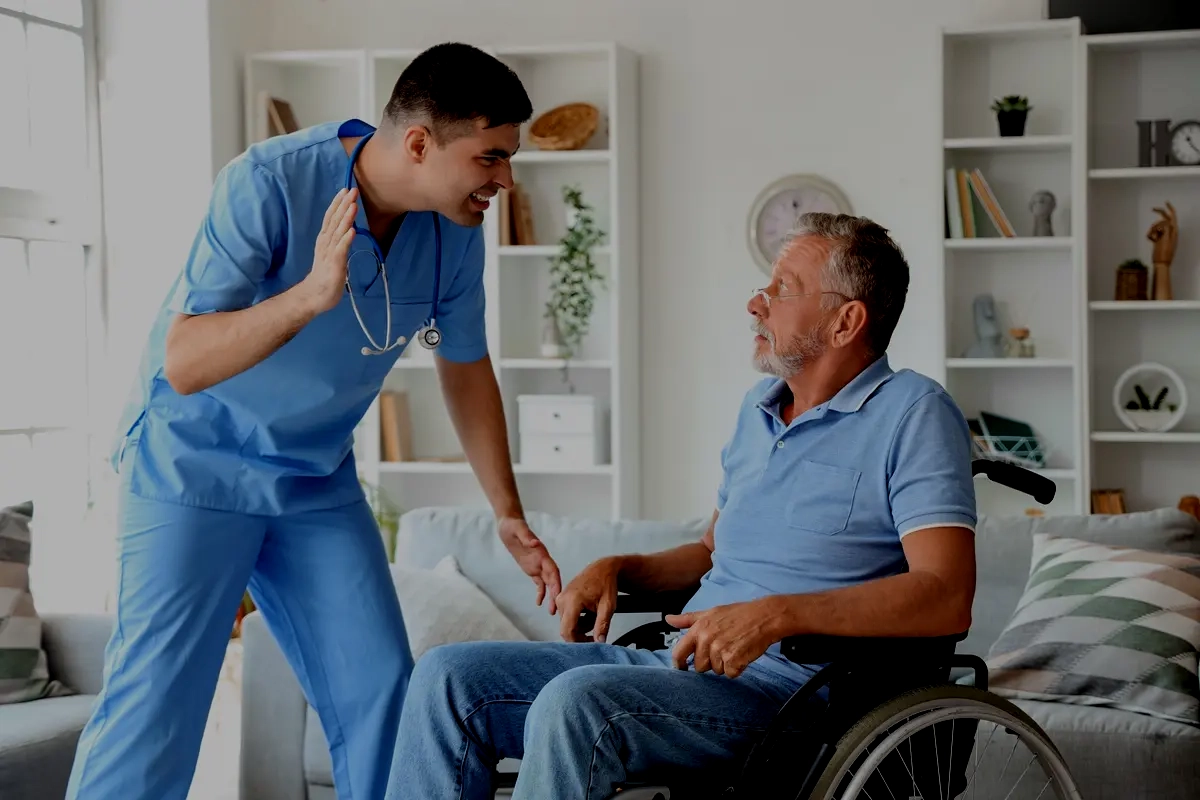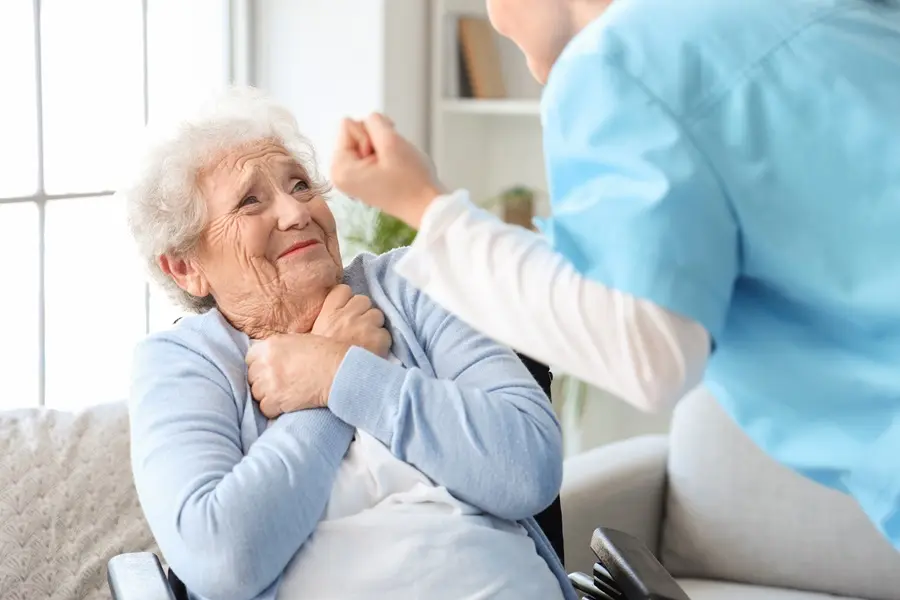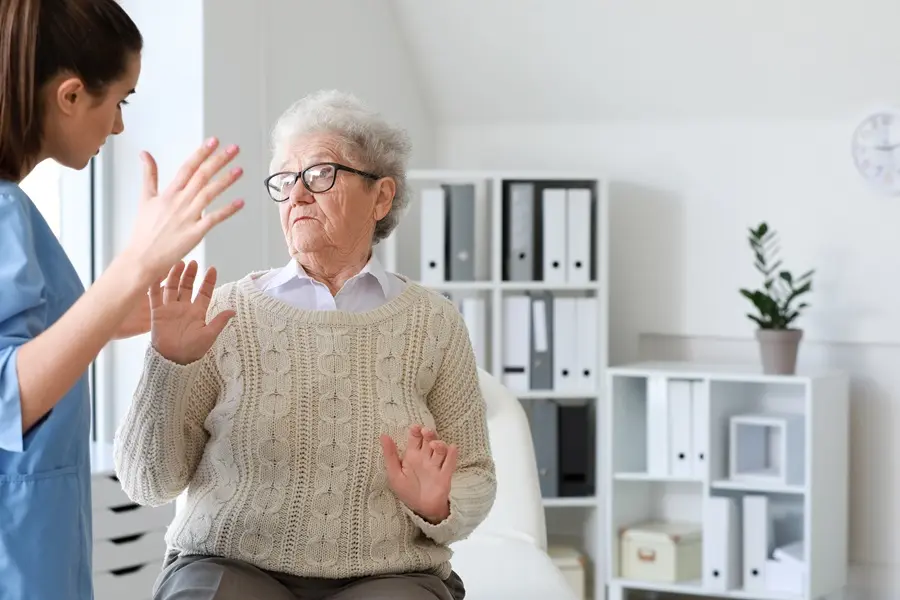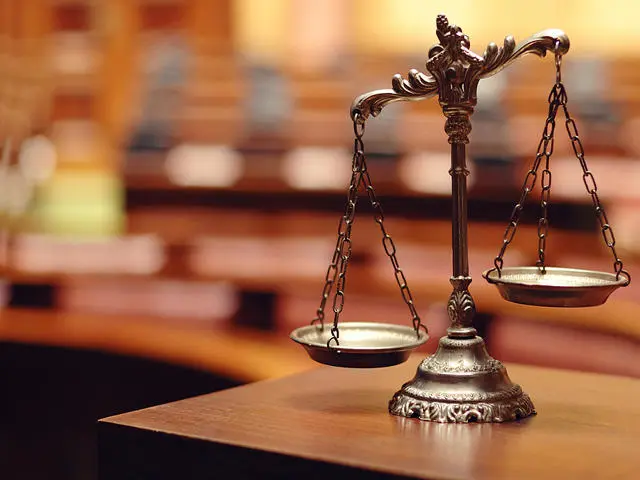What Is Abuse?
In the context of nursing homes and assisted living facilities, abuse refers broadly to any act that causes harm or distress to another person. It can take various forms, each with its own damaging effects.
Typically, abuse is characterized by an imbalance of power, where the abuser exerts control over the victim. This can lead to serious physical, emotional, and psychological consequences.
The following overview explains common types of abuse and their similarities and differences:
Physical Abuse

Inflicting physical force in the form of grabbing, slapping, punching, shaking, or pushing is considered physical abuse. When a nursing home staff member intentionally uses physical force to harm an older person, they’re guilty of physical abuse.
Emotional and Mental Abuse
Emotional abuse involves inflicting psychological harm through actions like verbal attacks, insults, threats, intimidation, humiliation, or isolation. This form of abuse can erode a resident’s self-esteem, induce anxiety and depression, and significantly impact mental health and overall emotional well-being.
Sexual Abuse
Sexual abuse in nursing homes encompasses any non-consensual sexual contact or interaction with a resident, including unwanted touching, sexual assault, and coercing a resident into sexual acts through manipulation or intimidation. It’s an especially egregious violation of personal rights and respect that often leaves lasting psychological trauma.
Financial Abuse
Financial abuse involves the illegal or unethical exploitation of a resident’s financial resources. This can include stealing money or property, forging signatures, coercing changes in wills or financial documents, and misusing power of attorney privileges. Such a breach of trust can significantly impact the victim’s financial stability and sense of security.
Neglect

Out of all the different forms of abuse that plague nursing homes, neglect is sadly the most common. Failure to feed and bathe residents, change soiled sheets, or perform other duties is considered neglect.
Older adults are often placed in nursing homes because they’re no longer able to fully care for themselves. Whether done accidentally or intentionally, ignoring the needs of nursing home members is neglect.
Nursing Home Abuse Statistics and Risks
The National Center on Elder Abuse conducted a study involving several individuals, revealing significant findings:
- Around 10% of participants reported experiencing abuse in the prior year;
- Family members, including adult children, spouses, and partners, are the abusers in about 90% of cases;
- Only about 1 in 14 cases of elder abuse is reported to authorities;
- Profit-driven practices in some nursing homes, such as reducing staff numbers, have been found to significantly increase the risk to elderly residents.
Nursing homes are often associated with frightening stories about how the residents are treated. Many good facilities in Jackson treat their residents well. Unfortunately, this can’t be said for all of them. That’s why it’s important to do extensive research before placing your elderly loved one in the hands of another caregiver, professional or otherwise.

Help Your Loved One Get Compensation After Abuse
If you have an elderly loved one who has suffered from elder neglect or abuse, don’t wait to take action. Contact a Jackson nursing home abuse lawyer at Brown, Bass & Jeter to get compassionate legal support.
Common Signs of Nursing Home Abuse
Recognizing the signs of nursing home abuse is crucial for protecting the well-being of vulnerable residents.
Common indicators include:
- Physical signs: Unexplained injuries like bruises, cuts, or broken bones; frequent falls; sudden weight loss; or poor hygiene;
- Emotional changes: Withdrawal from social activities, sudden mood swings, fearfulness, or depression;
- Indications of neglect: Bedsores, unattended medical needs, poor personal hygiene, or unsanitary living conditions;
- Financial anomalies: Unexplained withdrawals from bank accounts, changes in wills or power of attorney, or missing personal belongings;
- Sexual abuse signs: Bruises around breasts or genitals, unexplained venereal disease, or torn or stained underclothing;
- Behavioral changes: Increased agitation, rocking, biting, or other unusual behaviors.
If your elderly loved one exhibits any of these signs, don’t hesitate to seek qualified legal aid.
Main Causes of Nursing Home Abuse in Jackson

Nursing home abuse is a complex issue with many potential causes and effects.
Here are some common factors that contribute to the problem:
- Understaffing: When a facility doesn’t have enough staff, employees become overburdened, leading to increased stress, exhaustion, and a lack of time to properly tend to the needs of all residents;
- Negligent hiring: This involves hiring caretakers who, based on their criminal backgrounds or actions during past employment, are at high risk of mistreating or neglecting vulnerable older adults;
- Inadequate training: Caretakers who aren’t properly trained for their roles can slip into patterns of neglect; undertrained caretakers are more likely to mishandle frail or mobility-challenged residents and make other mistakes;
- Medication errors: Overlooked or improperly administered medication and other medical errors can constitute abuse.
The best way to prevent nursing home abuse is to always research and observe a particular facility carefully before entrusting its employees with the care of an elderly loved one.
Seeking Damages for Nursing Home Abuse in Jackson

Recovering damages for elder abuse or Neglect in Jackson involves a legal process wherein victims or their representatives can pursue compensation for the harm they’ve suffered. Several types of damages can be recovered in these claims, including the following.
Economic Damages
Economic damages are quantifiable monetary losses resulting from the abuse. This award category covers past and future medical expenses, lost wages, and other costs directly attributable to the abuse. For instance, expenses incurred for the treatment of abuse-related injuries fall under the category of economic damages.
Non-Economic Damages
Non-economic damages are intended to compensate for physical and emotional pain caused by the abuse, including physical discomfort, emotional distress, loss of enjoyment of life, and other losses that aren’t easily quantified. In many elder abuse cases, these damages can form a significant portion of the settlement, depending on the severity of the harm caused.
Punitive Damages
More rarely, punitive damages are awarded in cases where the defendant’s conduct is deemed especially reckless or malicious.
Unlike compensatory damages that reimburse for suffered losses, punitive damages are intended to punish the perpetrator and deter similar conduct in the future. They may be awarded in addition to economic and non-economic damages.











